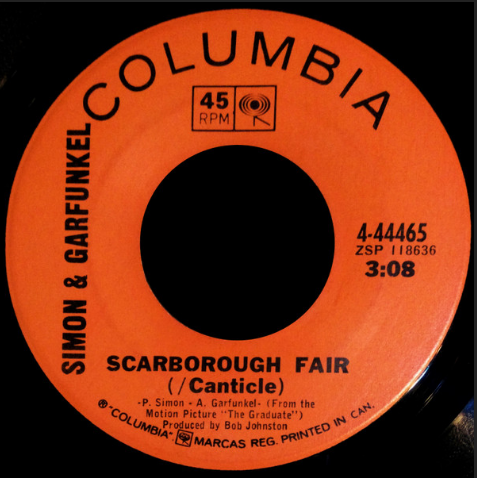Midnight Toker
Senior Member
- Joined
- Nov 7, 2021
- Messages
- 1,859
- Reaction score
- 3,309
- Guild Total
- 2
I agree w/ not pirating, but I don't think cd's hurt any artists. The 86-92 era was the biggest album selling era in the history of the music business. LP's, cassettes, and cd's were all still selling and for many, they felt compelled to repurchase much of their LP collection in the new CD format, so many of the biggest bands of the 70's actually had their biggest album sales peaks after 85...when 1st gen fans repurchased their albums coupled w/ 2nd gen fans buying it for the first time. It was a win/win for everyone. Then Fast forward another 15-25 years, and the realization that nearly all of those original digital transfers were done in a hastily manner using what are now considered subpar A/D converters, so people are re-re purchasing remasters of these albums yet again!! I happened to be one of those guys for 14 months in 86-87. I was working for Polydor/Polygram (then run by Phillips/DuPont Optical/Siemans) in the world's largest cd manufacturer in Langenhagen just outside of Hannover Germany. It was painfully boring work. Every day I'd have a giant stack of Umatic tapes that were recently transferred from analog. I'd load them into a Sony PCM editing bay, listen for pops, clicks, warbles...take counter notes, track end/beginning counter notes, then they would go on to the next person that cleaned them up and edited them. We were basically given the task of taking 100 years worth of recorded audio and having a pressed sellable product of it on store shelves within 3-4 years time! Impossible, hence most early cd's being junk.Musicians Reduced to Begging - Just say "No" to digital in general (but "Maybe" to CDs).
Musicians reduced to begging, great musicians at that - Norma Waterson, Martin Carthy and Eliza Carthy.
Norma Waterson was a major UK cultural figure, a giantess in the world of traditional Folk Music. She received an MBE from Queen Elizabeth in honour of her cultural service to the UK. Norma just recently passed away.


Norma Waterson - Wikipedia
en.wikipedia.org

Order of the British Empire - Wikipedia
en.wikipedia.org
Her husband was Folk Revival pioneer, Martin Carthy, another giant. He was also awarded an MBE.

Martin Carthy - Wikipedia
en.wikipedia.org
Without Carthy we might have somewhat different versions of Bob Dylan and Paul Simon - both were inspired by Carthy when they visited England in the early 60s.
Simon badgered Carthy to teach him a traditional Yorkshire/North Umbria [Edit: Northumbria - Thx PoD] area song he had heard Carthy playing and singing. Carthy showed Simon his arrangement and gave him the words. Simon took it all home, did a minor bit of rearranging, merged it with one of his own earlier pieces, and claimed authorship of it.
:max_bytes(150000):strip_icc()/photo-of-art-garfunkel-and-simon---garfunkel-and-paul-simon-and-simon-and-garfunkel-86117459-59e77e2b0d327a0010cff553.jpg)
History of the Folk Song 'Scarborough Fair'
Simon & Garfunkel's 1960s version is famous, but this old folk song dates back to medieval times in England.www.liveabout.com
Scarborough Fair (ballad) - Wikipedia
en.wikipedia.org
Carthy and Waterson's daughter is Eliza Carthy, another performer of huge stature in the Folk world. She has also been awarded an MBE.

Eliza Carthy - Wikipedia
en.wikipedia.org
Eleven years ago, she, along with her two children, moved in with her parents to help support them in their old age. Martin and Norma were in poor health and were unable to perform.
In the last two years, they have approached destitution.
Collectively, Norma Waterson, Martin Carthy, and Eliza Carthy have a massive back catalogue of recordings. This is even larger if we add in the back catalogue of The Watersons.

The Watersons - Wikipedia
en.wikipedia.org
The back catalogue does not produce enough revenue for a conformable life.
Reduced to Begging - "Spare change for a coffee, Mister?"
Musicians used to earn decent money from vinyl and tape sales and radio play. Collectively they got screwed over a bit with CDs. The industry was given a royalties break by artists in order to help launch the new format which required expensive changes to studios and the development of new manufacturing facitlites. Nobody, perhaps not even the Industry iteslf, could foresee what would happen. Nobody imagined that CDs would displace vinyl and tape. Nobody imagined the massive piracy that would ensue - copying of CDs, fake illegal CDs, and the Internet distribution of pirated MP3 files. iTunes is an extension of the transition to CDs - my understanding is that an iTunes sale does not give an artist as much money as a CD sale. And Spotify revenues are an insult for anyone less popular than Taylor Swift or Ed Sheeran. At multiple live concerts in the years before the pandemic, I have heard musicians begging from the stage - "Will sell CDs at the merch table for food!"
We all like to laugh at the musician jokes - "What's the difference between a musician and large pizza? A large pizza can feed a family of four." - but really, they're not all that funny, are they?
If you like an artist, buy a CD. If you really like them, buy new vinyl. Just say "No"to Spotify. Don't pirate music - it is definitely not a victimless crime. When it is safe to do so, support live music with a vengence and do go to the merch table.
Fact is, we live in a different world today, and sadly, if you didn't earn enough in your formidable years to carry you through your twighlight years, just like Joe Public w/ the daily 9-5 grind, or made sound investments for a secure retirement, then that's on you. Sorry, but it's not the public's fault. Unless you're a global household name, the folk genre in general likely hasn't been a sustainable income since well before digital took over, and jobs becoming obsolete via technological changes/advancements has been a fact of life for hundreds of years. Today we are seeing numerous 60's/70's rock stars that once regularly played in front of tens of thousands and were rolling in the dough, now living in a 150,000 house and selling their instruments and personal memorabilia to pay their bills. So it's nothing new. And it's not because of digital. Simply because the bulk of folks that would buy their album, already have, and kids today have no interest in it anymore. This has been going on for a long time. Art simply ages out. Always has, always will. Only the cream of the crop gets to ride the wave until the very end. The rest, even one hit wonders, if they don't take a day job while still young enough, will have a hard time getting by.
